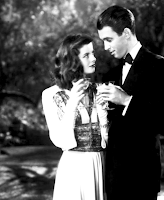10.) Lon Chaney, Jr. as "Larry Talbot / The Wolf Man" in The Wolf Man (1941): Bringing seriousness and sympathy to a werewolf movie is no easy feat. Surely this was even more difficult in 1941, with classics like The Maltese Falcon and Citizen Kane popping up like spring dandelions. Yet, with the incredibly talented Lon Chaney, Jr. (son of the Phantom himself, Lon Chaney, Sr.) leading the way, this film stands up well against its cinematic peers. As both the daunted protagonist and the vicious antagonist, Chaney is splendid. No other horror movie of the decade can boast a performance so polished.
9.) Lamberto Maggiorani as "Antonio Ricci" in Bicycle Thieves (1948): How could Lamberto Maggiorani, a non-professional actor (a factory worker, actually), without a single film credit to his name and without a minute of formal training, pull off such an amazing performance in the Italian classic Bicycle Thieves? His minimalist portrayal walks hand-in-hand with the writing and direction, keeping the film's artistic aspirations pointed and focused. This is a great movie, and Maggiorani is the one who keeps it constantly moving forward.
8.) Celeste Holm as "Anne Dettrey" in Gentleman's Agreement (1947): This is a dense film, one that is thick with contemplation about the nature of humanity and the societies we create. In the midst of all this opaque drama, in which every character seems in constant distress, Celeste Holm provides a bright ray of stability. Her portrayal is beautifully multilayered, with a frothy layer of retro gumption on top and a placid pool of interpersonal understanding on bottom. This is an Oscar-winning performance (for Best Supporting Actress) that is incredibly impressive.
7.) Jimmy Stewart as "Macaulay Connor" in The Philadelphia Story (1940): Watching this character is like watching a "Jimmy Stewart's Greatest Hits" compilation, in which he effectively explores many of the traits and personalities he would come to embody in his long career. Hopeless romantic? Check. Cynical opportunist? Check. Sarcastic optimist? Check. Embittered drunk? Check. Yes, this character changes a lot from beginning to end, and what's most impressive of all is that Stewart is 100% realistic with every change. Although he was nominated for an Academy Award a total of five times, this is the role that gave him his only win.
6.) Barbara Stanwyck as "Jean Harrington" in The Lady Eve (1941): In a supremely goofy movie (which, dare I say, is silly almost to an unfunny fault) stacked tall with absurd performances and odd plot twists, somehow the great Barbara Stanwyck manages to captivate. She's funny, she's smart, she's bold, but most of all, she's entertaining. In general, I tend to dislike Henry Fonda (he always seems stiff, awkward), and in this movie he plays Stanwyck's love interest. The resulting contrast makes her seem more intriguing, more fascinating than perhaps she actually is. Regardless, it's a terrific performance in a not-so-terrific film.
5.) Hume Cronyn as "Capt. Munsey" in Brute Force (1947): He may be soft spoken, he may be small in stature, but in the exhilarating film noir Brute Force, actor Hume Cronyn portrays an electric villain. Set in a maximum-security prison, Cronyn is the malicious "Capt. Munsey" - the head guard and chief of security. He is positively vile, with a realistic resonance at his core. Amongst a cast of actors who seem bent on chewing scenery, this villain is underplayed with authenticity and subtlety. He is marvelous.
4.) Walter Huston as "Howard" in The Treasure of the Sierra Madre (1948): Unlike all the other performances on this list, Walter Huston's "Howard" is a perfect juxtaposition. He's a spark, a sprite, a nimble-tongued hummingbird, one who speaks rapidly, one who is carefree and jovial. But he's also dramatic, commanding, and wise - his face as deeply lined as a craggy goldmine, his words as faded and worn as an old paperback novel. This role won Huston the Oscar for Best Supporting Actor, and it shows. This is an interesting and versatile performance, one that keeps you in his corner all the way to the end.
2.) Katharine Hepburn as "Tracy Lord" in The Philadelphia Story (1940): With a quickness and tenacity unrivaled by her contemporaries, Katharine Hepburn often portrayed characters with a sarcastic (and surprisingly flirtatious) charm. In the romantic classic The Philadelphia Story, she takes this basic mold and fills it in with humor, heart, and tenderness. While this movie is overflowing with terrific performances (notably Cary Grant, Ruth Hussey, and the previously-mentioned Jimmy Stewart), Hepburn is the one who steals the show. She's hilarious, she's heartbreaking, and she's unfailingly captivating.
1.) Orson Welles as "Charles Foster Kane" in Citizen Kane (1941): Reputed by many to be the greatest film ever made (I disagree, but it's certainly an excellent movie), Citizen Kane is a story of one man's insatiable appetite for power. This man is Charles Foster Kane, and the actor who brings him to life is none other than Orson Welles. There's a tangible magnetism, a fluttery electricity, to this performance. It somehow stands apart, is singular in the grand scheme of American cinema. From beginning to end, Welles wholly embodies Kane. This could partly be attributed to the writing and directing, of which Welles also did. Yet the synchronicity between reality and fiction, between the man and the character, is too harmonious for just that. Surely much more went into this performance. His voice and physicality are both natural, his manner totally realistic. Thanks to some lovely make-up effects and lighting choices, Welles plays the title character both as a twinkle-eyed twentysomething and a chilled, embittered old man. The resulting performance is that of a towering genius.









